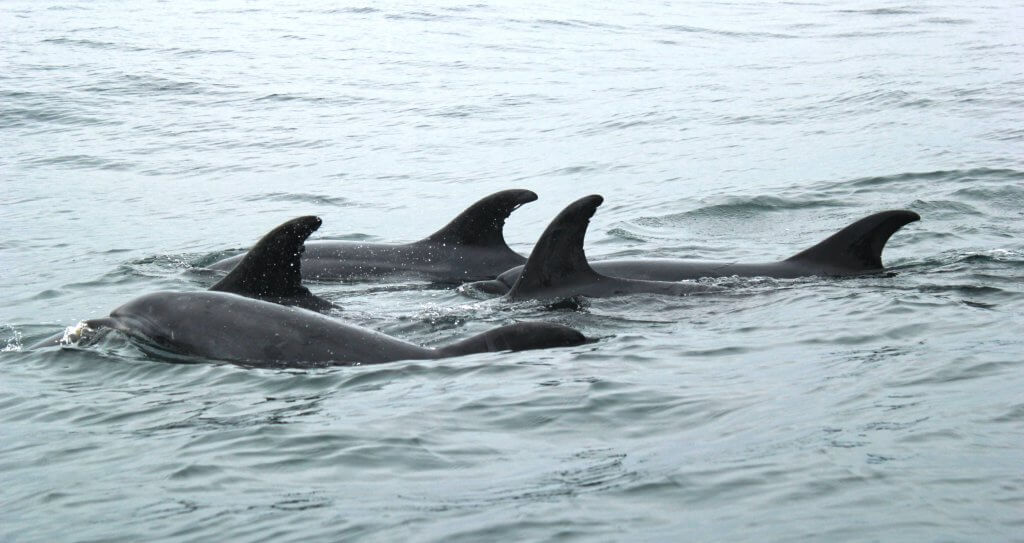
10 Feb How Dolphins Can Help Us Understand Alzheimer’s
You probably already know that dolphins are incredibly smart creatures. We’ve seen them mimic humans, “see” with sonar and echolocation, and demonstrate problem-solving and self-awareness. The dolphin brain is quite similar to the human brain, and now, a new study may reveal how we can use dolphins and Alzheimer’s to learn more about one of the most debilitating mental conditions in humans.
ABOUT THE STUDY
It’s important to understand a bit of backstory before discussing the study itself. Recently, the Scottish coastline has been subjected to several unexplained strandings of dolphins. While it’s not possible to determine what exactly caused the dolphins to wash ashore, researchers may have come up with a plausible theory.
A study published in December 2022 explains how scientists conducted studies on the brains of odontocetes, or toothed whales, to learn more about potential links to Alzheimer’s disease, a condition that mostly impacts older humans. Five species were represented in the study, one of which was the bottlenose dolphin (the most common dolphin species here in Myrtle Beach!).
In humans, we know of specific brain lesions that are associated with Alzheimer’s disease. Scientists who performed postmortem studies on these odontocete brains found that three aged dolphins had these same lesions. Additionally, researchers found amyloid-beta plaques in the dolphins’ brains. Amyloid-beta plaques are clumps of protein found in the brains of Alzheimer’s patients.
WHAT ELSE DO WE KNOW?
The implications of this study could be larger than we realize. Previously, it was believed that only humans developed the lesions associated with Alzheimer’s. But Mark Dagleish, coauthor of the study, says the findings are “the closest anyone has been able to show that any animals develop the Alzheimer’s disease-associated lesions spontaneously.”
In an attempt to explain why dolphins are consistently being stranded on the Scottish coast, some scientists have created the “sick-leader” theory. The idea is that a group of animals will follow an “aged leader into shallow waters, potentially as a result of the leader’s confusion.”
Since human and dolphin brains are so similar, there is a potential for dolphins to be susceptible to developing Alzheimer’s. However, Alzheimer’s can only be diagnosed if cognitive deficits are detected, which is impossible to determine in a postmortem study.
LEARN MORE ABOUT DOLPHINS WITH BLUE WAVE ADVENTURES
Dolphins are infinitely fascinating creatures, and there’s no limit to the amazing discoveries we can make because of them. If you’re interested in learning more about dolphins during your next vacation, check out our dolphin tours in Myrtle Beach! Blue Wave Adventures offers family-friendly Myrtle Beach eco-tours that guests of all ages will enjoy. You’ll have the chance to see dolphins and other marine life while experiencing a relaxing boat ride and learning from your knowledgeable captain.
A Myrtle Beach eco-tour is the perfect addition to your vacation itinerary. Contact us today to learn more!

Sorry, the comment form is closed at this time.